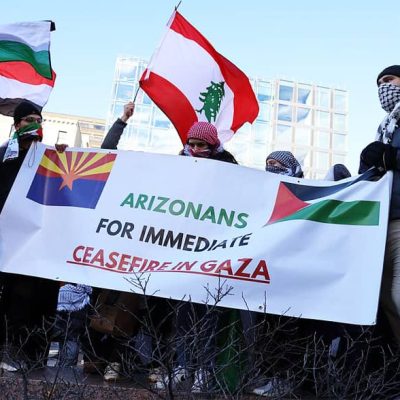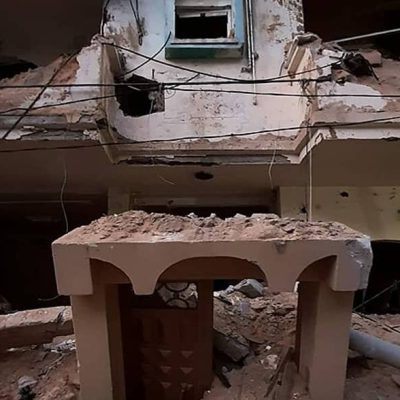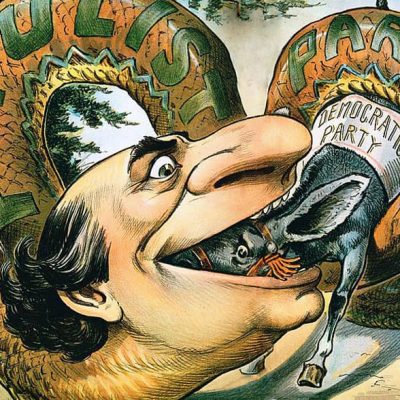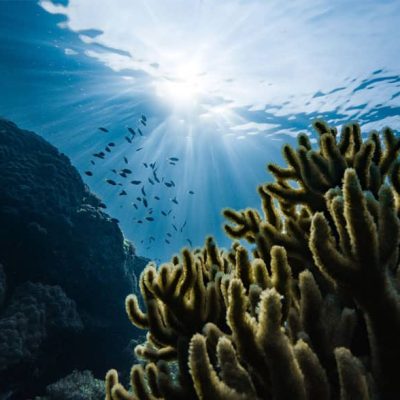 UN: Growth of World Law.
UN: Growth of World Law.
The United Nations Peacekeeping Forces, Weak but Necessary.
Featured Picture: MONUSCO Photos, CC BY-SA 2.0 <https://creativecommons.org/licenses/by-sa/2.0>, via Wikimedia Commons.
I am confident that if we work together and champion truly bold reforms,
the United Nations will emerge as a stronger, more effective, more just
and greater force for peace and harmony in the world.US President Donald Trump, 18 September 20017.
29 May; is the International Day of The United Nations Peacekeeping Forces. The day was chosen; in memory of the creation of the first UN interposition force in the Middle East. In the years since; 3,800 have lost their lives. Today there are 14 operations. The most difficult are in Africa; where there has been large scale breakdown of State structures; such as the Central African Republic, South Sudan, and the Democratic Republic of Congo.
The deployment of U.N. peace-keeping forces; is only one aspect of conflict resolution and peace building. However; The United Nations Peacekeeping Forces are the most visible; (and expensive) aspect of the U.N. peace-building efforts. Thus; our attention must be justly given to the role; the financing; and the practice of The United Nations Peacekeeping Forces.
U.N. Peace operations.
How effective are U.N. peacekeeping operations in preventing and stopping violence?; Are there alternatives to the ways that U.N. and regional organizations; currently carry out peacekeeping operations?; How effective are peacekeeping operations in addressing the root causes of conflicts?; How does one measure the effectiveness of peacekeeping operations?. We must ask questions of their effectiveness; and if these military personnel should not be complemented by other forms of peace-building.
There have been reports of U.N. Peace operations; in the eastern part of the Democratic Republic of Congo and in South Sudan; which highlight the systematic rape of women in the area; and the inability or unwillingness of U.N. Troops to stop the rapes; which have become standard practice; in the areas on the part of both members of the armed insurgencies; as well as by members of the regular army. There are also other examples when “failure” is the key word in such evaluations of U.N. Forces.

BANAIR-13 UN Medal Awarding Parade at Bunia. Province Orientale. Republique democratique du Congo. Mambasa, Democratic Republic Congo (2016).By Sqn.Ldr.Zaman & Faisal, CC BY-SA 4.0 <https://creativecommons.org/licenses/by-sa/4.0>, via Wikimedia Commons.
The Creation of a Permanent UN Standby Force.
The first reality is that there is no permanent U.N. trained and motivated troops. There are only national units loaned by some national governments; but paid for by all U.N. Member States. Each government trains its army in its own spirit and values; though there is still an original English ethos as many U.N. troops come from India, Pakistan, Bangladesh,
There have been proposals by some governments and non-governmental representatives; such as the Association of World Citizens for the creation of a permanent UN standby force. This has been rejected; usually on grounds of cost ( although it would be only a fraction of what is now spent on national armies.) There has also been an alternative proposal of creating within national armies; specially-trained forces for UN use. In light of the fact that the great majority of UN troops come from south Asia; speak English and were originally formed in an English tradition; the creation of such units ready for quick use is a real possibility.
Blue Helmet.
Moreover; there is no such thing as consistency and predictability in U.N. actions o preserve order. The world is too complex; and the UN Security Council resolutions; are voted on the basis of national interest; and political power considerations. U.N. “blue helmet” operations; have grown both in numbers and complexity. Even with the best planning; the situation in which one deploys troops will always be fluid; and the assumption on which the planning was based may change.
To be successful; U.N. Peacekeeping operations need to have clear objectives; but such objectives cannot be set by the force commanders themselves. Peacekeeping forces are temporary measures that should give time for political leaders to work out a political agreement. The parties in conflict need to have a sense of urgency about resolving the conflict. Without that sense of urgency; peacekeeping operations can become eternal as they have in Cyprus and Lebanon.
The International Day of U.N. Peacekeepers.
U.N. Forces are one important element in a peacemakers tool kit; but there needs to be a wide range of peace building techniques available. There must be concerted efforts by both diplomatic representatives; and non-governmental organizations to resolve the conflicts; where U.N. troops serve. Policemen, civilian political officers, human rights monitors, refugee and humanitarian aid workers; and specialists in anthropology all play important roles along with the military. Yet non-military personnel are difficult to recruit.
In addition; it is difficult to control the impact of humanitarian aid; and action as it ipples through a local society and economy; because powerful factors in the conflict environment; such as the presence of armed militias; acute political and ethnic polarization; the struggle over resources in a war economy will have unintended consequences.
As we honor the International Day of The United Nations Peacekeeping Forces; we need to put more effort on the prevention of armed conflicts; on improving techniques of mediation; and creating groups which cross the divides of class, religion, and ethnicity.
Rene Wadlow; President; Association of World Citizens.

Presidente, Asociación de World Citizens (AWC).
Cursó Estudios de Relaciones Internacionales en La Universidad de Chicago.
Cursó Estudios en el Programa Especial de Civilización Europea en
La Universidad de Princeton
Here are other publications that may be of interest to you.
Prevenir la expansión del conflicto de Gaza: ¿Son posibles las brigadas de paz?
Antony Blinken, el secretario de Estado de Estados Unidos, ha estado nuevamente en Medio Oriente trabajando para evitar que la violencia de la Franja de Gaza se extienda a gran…
Ciudadanos del Mundo Piden un fin Inmediato a las hostilidades entre Israel y Hamás, y por un esfuerzo auténtico de construcción de Paz en Oriente Medio.
Imagen destacada: El impacto del bombardeo israelí sobre un edificio civil en Gaza (2021). Por Osama Eid, CC BY-SA 3.0 https://creativecommons.org/licenses/by-sa/3.0, via Wikimedia Commons. La Asociación de Ciudadanos del Mundo,…
Transformación del Populismo en Europa y las Américas: Historia y Tendencias Recientes.
Imagen de portada: Caricatura de juez de 1896 que muestra a William Jennings Bryan/Populismo como una serpiente que se traga a la mula que representa al Partido Demócrata. Por la…
Día Internacional de los Océanos.
Imagen destacada: Foto de Marek Okon, Unsplash. Es necesario avanzar en las delimitaciones marítimas asiáticas. . El 8 de junio ha sido designado por la Asamblea General de las Naciones Unidas como…



